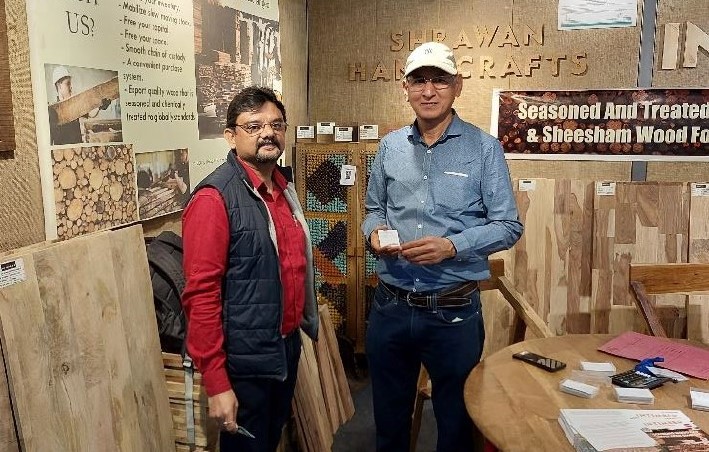Over the years, it has proved to be a driving force for the woodworking and furniture manufacturing Industry from India and abroad. It featured major domestic and international companies specializing in woodworking and furniture production technologies, providing a global platform for showcasing the latest innovations, forging partnerships, and exploring investment opportunities. Attendees represented the complete woodworking eco system including small, medium, and large furniture manufacturers, interior decorators, architects & builders, kitchen manufacturers, saw millers, timber importers and merchants, wood workers, hardware distributors and dealers, plywood & particle board manufacturers, craftsmen, forestry officials, experts from research institutes and manufacturers of wood-based articles.

The Indian furniture industry is gradually transforming into a more organized and competitive sector. The entry of global brands in the sector, emergence of large retail players, online D2C sales and the resultant consolidation, are trends that highlight this transformation. It has been identified as one of the sunrise sectors, which has the potential to emerge as a crucial pillar for the “Make in India” campaign.
The stakeholders from the woodworking and furniture manufacturing industry got an opportunity to meet national and international decision-makers, acquire new customers and discuss key issues including Digitalization, sustainability, skilling, supply chain management as also discover new trends, technologies and materials.
Delhiwood - 2023 projected attendance is 30,000 trade visitors.
The Indian Furniture Market stood at USD23.33 billion in FY2021 and is growing at a CAGR of 6.04% during the forecast period to reach the value of USD32.75 billion by FY2027. The development of e-commerce channels has further expanded the reach of the Indian Furniture Market to a wider audience. India is the fifth largest furniture producer at a global level and the fourth largest consumer of furniture.
Key Highlights of the Expo
- 600+ exhibitors
- 12+ Country pavilions
- 30000+woodworking professionals
- Product launches and technical demonstrations of woodworking machines
- Seminars and conferences by industry experts
- Training and skill development programs
Key Learnings
- Mango wood, Acacia wood and Shisham wood are in demand, but the supply chains are complex and not much scope for FM certification. The supply of these species is erratic as it is coming from numerable known/unknown sources. Traders procure from their contacts only when firm demand or orders exist.
- Most of the VC operators do not find the need for going for COC certification as there is no such demand from their principals. Some of the VC operators have tried getting COC certifications but they have not got adequate response from the CBs or they find the entire process very complicated.
- There is a mismatch between the species available in India under FSC FM certification and the species required by woodworking industry. Eucalyptus, Casuarina, Poplar, Acacia auriculiformis species which are available in FM certified forest in India and mostly being consumed in-house by the paper companies. Any additional requirement of FSC certified wood is mostly being met through imports.
- CBs need to be proactive in approaching potential COC CHs.
- Better visibility needed for forest certification needed in terms of publicity, capacity building and training material.
Interested in learning more? Please contact Dr Suresh Gairola s.gairola@fsc.org
